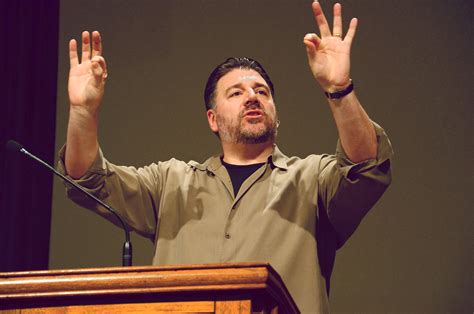A Quote by Fanny Kemble
My chief time for reading is at night while brushing my hair before I go to bed, and as you may suppose, but little profit and pleasure can be derived from such mere sips at the well of knowledge. 'Tis a great privation to me, for my desire for information increases instead of diminishing, and I look forward with great anxiety to the time when I can improve my poor neglected mind and learn some of the few exhaustless store of things which I wish to know.
Related Quotes
Pleasure is not the goal of man, but knowledge. Pleasure and happiness comes to an end. It is a mistake to suppose that pleasure is the goal. The cause of all the miseries we have in the world is that men foolishly think pleasure to be the ideal to strive for. After a time man finds that it is not happiness, but knowledge, towards which he is going, and that both pleasure and pain are great teachers.
Ambition is the desire to go forward and improve one's condition. It is a burning flame that lights up the life of the individual and makes him see himself in another state. To be ambitious is to be great in mind and soul. To want that which is worth while and strive for it. To go on without looking back, reaching to that which gives satisfaction.
A life of mere pleasure! A little while, in the spring-time of the senses, in the sunshine of prosperity, in the jubilee of health, it may seem well enough. But how insufficient, how mean, how terrible when age comes, and sorrow, and death! A life of pleasure! What does it look like when these great changes beat against it--when the realities of eternity stream in? It looks like the fragments of a feast, when the sun shines upon the withered garlands, and the tinsel, and the overturned tables, and the dead lees of wine.
The great opposition to reading is what I allow to fill my time instead of reading. To say we have no time to read is not really true; we simply have chosen to use our time for other things, or have allowed our time to be filled to the exclusion of reading. So don't add reading to your to-do list. Just stop doing the things that keep you from doing it. But read.
There are some who wish to learn for no other reason than that they may be looked upon as learned, which is ridiculous vanity ... Others desire to learn that they may morally instruct others, that is love. And, lastly, there are some who wish to learn that they may be themselves edified; and that is prudence.
A slight sabre-cut will separate my head from my body, like the spring flower which the Master of the garden gathers for His pleasure. We are all flowers planted on this earth, which God plucks in His own good time: some a little sooner, some a little later. Father and son may we meet in Paradise. I, poor little moth, go first. Adieu.
I have a lot of energy. I have a great desire to absorb information. I’m not a sponge exactly, but I find that something I look at — just walking around Williamsburg, for example — is a great opportunity for ideas. I’ve been here before, I’ve seen things before, but now my eye gets keener and keener. So I can pick up little things: just the pattern of a brick walk, or the way they’ve attached a light to a house.
Do not talk about giftedness, inborn talents! One can assume great men of all kinds who were very little gifted. They acquired greatness, became “geniuses” (as we put it), through qualities the lack of which no one who knew what they were would boast of: they all possessed that seriousness of the efficient workman which first learns to construct the parts properly before it ventures to fashion a great whole; they allowed themselves time for it, because they took more pleasure in making the little, secondary things well than in the effect of a dazzling whole.
Thomas Edison reads not for entertainment but to increase his store of knowledge. He sucks in information as eagerly as the bee sucks honey from flowers. The whole world, so to speak, pours its wisdom into his mind. He regards it as a criminal waste of time to go through the slow and painful ordeal of ascertaining things for one's self if these same things have already been ascertained and made available by others. In Edison's mind knowledge is power.
Tears may be considered as the natural and involuntary resource of the mind overcome by some sudden and violent emotion, before ithas had time to reconcile its feelings to the change in circumstances: while laughter may be defined to be the same sort of convulsive and involuntary movement, occasioned by mere sur prise or contrast (in the absence of any more serious emotion), before it has time to reconcile its belief to contradictory appearances.
Human experience, which is constantly contradicting theory, is the great test of truth. A system, built upon the discoveries of a great many minds, is always of more strength, than what is produced by the mere workings of any one mind, which, of itself, can do very little. There is not so poor a book in the world that would not be a prodigious effort were it wrought out entirely by a single mind, without the aid of prior investigators.
Those who dream by day are cognizant of many things which escape those who dream only by night. In their gray visions they obtain glimpses of eternity, and thrill, in waking, to find that they have been upon the verge of the great secret. In snatches, they learn something of the wisdom which is of good, and more of the mere knowledge which is of evil.




































